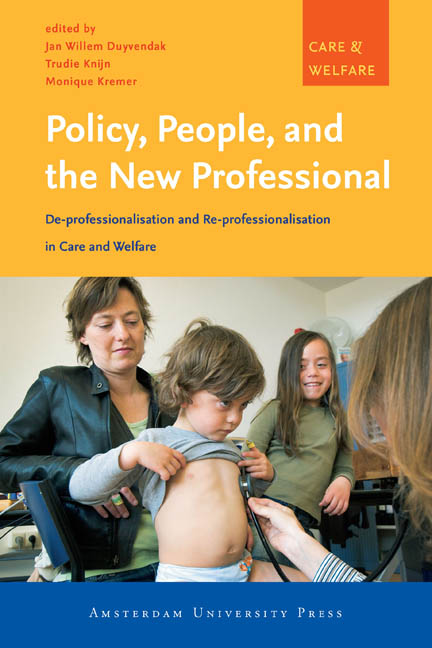 Policy, People, and the New Professional
Policy, People, and the New Professional 11 - Tensions in Medical Work between Patients’ Interests and Administrative and Organisational Constraints
Published online by Cambridge University Press: 23 January 2021
Summary
The German health care system is undergoing various changes due to what is known as the third health care reform (Gesundheitsreform), initiated by the Social Democratic and Green Party coalition government. Obviously, one of the aims is to reduce the general cost of health services. With the slogan ‘Rationalisation without Rationing’ (Rationalisierung statt Rationierung), a transformation process is currently taking place which influences the work of medical personnel in different ways.
This particularly affects hospital doctors, who will no longer be ‘captains of the ship’. New members of hospital boards will be increasingly recruited from the administrative elites. In this process, doctors will gradually lose their influence on organisational aspects, especially with respect to human resources and strategic decisions within their hospitals. The way in which physicians conduct their daily work will also be affected. From a sociological viewpoint, there seems to be an ongoing process of de-professionalisation and dissolution of the power and autonomy of the medical profession. One might think that a new kind of professionalism is emerging, because under the new conditions, expert knowledge will remain one of the most powerful resources in medical work. But as I argue further, the configuration of this expert knowledge increasingly acquires the characteristics of highly distributed knowledge. Because of this feature I propose to use the term ‘medical expert’ rather than ‘medical professional’.
Whether this movement affects patients negatively or positively is a question that needs to be answered empirically. The decreased power of physicians may lead to more patient autonomy. However, confronted with an anonymous organisation, it will be more difficult for patients to address their needs to an individual person, like a specific doctor.
Participant Observation in German Hospitals
The following remarks are based on ethnographic studies in German hospitals focusing on medical actions and decision-making. The investigation was accomplished in the form of a panel design, which allows us to perceive how the organisational changes have affected medical work in hospitals.
In the first part of the study field research took place from 2000 to 2002, in four different types of hospital departments (abdominal surgery, oncology, clinic for psychosomatic diseases, and a general medical ward) at several institutions.
- Type
- Chapter
- Information
- Policy, People, and the New ProfessionalDe-professionalisation and Re-professionalisation in Care and Welfare, pp. 152 - 163Publisher: Amsterdam University PressPrint publication year: 2006
